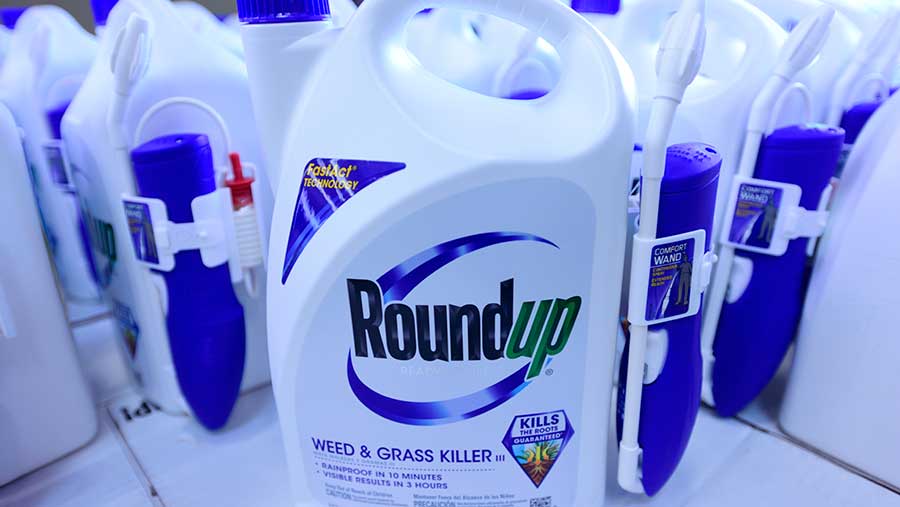Opinion: Life without glyphosate is hard to contemplate
 © Sipa USA/REX/Shutterstock
© Sipa USA/REX/Shutterstock I love the smell of glyphosate in the morning. In fact, such is the extent of my use of this ubiquitous desiccant over a 40-year farming career, I have learned to love the smell of Roundup in the morning, the afternoon and the evening.
But in the wake of last week’s decision by a court in California to order Monsanto to pay $289m (£226m) to a former gardener dying of cancer, saying it contributed to his disease, how much longer am I now going to be allowed (or will even wish to use) this controversial agrochemical?
See also: Farmers explain why glyphosate is vital on video
Over recent years we have all learned to cope with the withdrawal of the likes of chlorotoluron (Dicurane), isoproturon (IPU), paraquat (Gramoxone) and, more recently, the partial ban on certain applications of neonicotinoids.
These were all widely used and greatly valued agrochemicals in their day, and their withdrawal has been very problematic. But a potential ban on the use of glyphosate poses a disruption to our current farming practices and efficiency of an absolutely daunting magnitude.
For any farmer under 50, it is impossible to imagine “farming before Roundup”. My first job on my father’s farm as a schoolboy in the mid-1970s was to sit on a Ford 5000 for weeks on end pulling a chisel plough across 1,000 acres of arable stubbles during August in a desperate attempt to pull rhizomatous roots of common couch grass to the surface. In a dry year, they would then wither in the sunlight.
The tractor was fitted with a Duncan Cab, which was so primitive I would much rather have been without a cab at all because it merely trapped huge quantities of dust and much of the tractor’s heat inside, without any form of ventilation. In a wet year, all my hard work achieved was simply to spread the couch ever further across the field.
But the introduction of post-harvest and then pre-harvest Roundup revolutionised the fight against couch. Indeed, couch is rarely seen on my farm today and even if it is, it’s controlled when we desiccate rape or malting barley before harvest.
Worldwide, the acute dependence on glyphosate has increased greatly in recent years as more and more arable farmers have abandoned the plough in favour of min-till and “Roundup ready” GM crops. As average farm size has increased, the mad dash to get a seed drill over ever-larger areas each autumn and spring has rendered the plough virtually obsolete on many farms, (though not on mine).
Just how large, min-till arable farms would cope with a glyphosate ban is hard to imagine. Their whole scale and way of doing things would seem to depend on drilling in soil that can only be cleared of weeds and crop volunteers by a desiccant applied at the point of drilling.
Not only that, but the improvements to soil structure and moisture retention that result from min-till seem very real. So acknowledged has this become that Defra secretary Michael Gove has even proposed a special post-CAP subsidy to promote it.
So am I worried? On my own farm I’m sure we could ride out a glyphosate ban with little effect. I even have a daughter that might be grateful for the summer holiday chisel-ploughing wages. Even this farm has moved on from the Duncan Cab.
